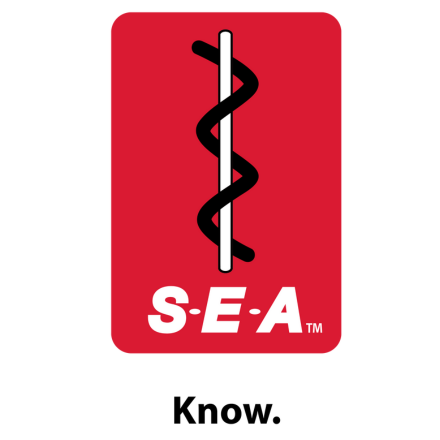Mississippi Court System
At Themis Advocates Group, we are committed to providing invaluable resources to members and clients alike.
OVERVIEW OF THE COURT SYSTEM IN THE STATE OF MISSISSIPPI
I. Courts
A. Trial Courts
1. Chancery Court
The State of Mississippi has twenty chancery court districts. Chancery courts are courts of limited jurisdiction covering certain matters of equity and domestic matters, such as wills and testaments, adoptions, minors, and marital relations. MS Const. Art. 6, §159. Additionally, Chancery Courts have jurisdiction of all cases transferred to it by the circuit court or remanded to it by the Supreme Court. Miss. Code Ann. §9-5-81.
2. Circuit Court
The State of Mississippi has twenty-two circuit court districts. Circuit courts are courts of general jurisdiction, having original jurisdiction over actions for which the amount in controversy exceeds $200. Miss. Code Ann. §9-7-81. Circuit courts have jurisdiction over all other matters not within the exclusive jurisdiction of some other court and appellate jurisdiction as prescribed by law. Id. Decisions rendered by a circuit court in a matter over which it lacks jurisdiction are null and void. Circuit courts generally hear appeals from final judgments of county, justice courts, municipal courts, and administrative boards and commissions such as the Workers’ Compensation Commission and the Mississippi Department of Employment and Security.
3. County Court
The State of Mississippi has twenty-one County Courts. County courts share jurisdiction with Circuit and Chancery Courts in some civil matters and have exclusive jurisdiction over eminent domain proceedings and juvenile matters. The jurisdictional limit of County Courts is up to $200,000. County Courts have concurrent jurisdiction with Justice Courts in all matters, civil and criminal. County courts are allowed to empanel juries.
4. Justice Court
The number of justice court judges varies based on population of the particular county, but each county has at least one justice court. Justice courts have civil jurisdiction over small claims civil cases involving amounts of $3,500 or less. Justice courts have concurrent criminal jurisdiction with circuit and county courts for misdemeanors and traffic offenses occurring outside of a municipality. However, justice courts may conduct bond hearings and preliminary hearings in felony cases.
B. Appellate Courts
Mississippi has a two-tier appellate court system that reviews decisions of law and fact made by the trial courts.
1. Court of Appeals
The Court of Appeals hears cases assigned by the Supreme Court. Miss. Code Ann. §9-4-3. As such it is an error correction court which hears and decides appeals on issues in which the law is already settled, but the facts are in dispute. The Supreme Court may review Court of Appeals decisions. If the Supreme Court declines review, the decision of the Court of Appeals stands. The Court of Appeals is located in Jackson.
2. Supreme Court
The Mississippi Supreme Court is the court of last resort among state courts. Decisions of the Chancery, Circuit, and County Courts and of the Court of Appeals may be appealed to the Supreme Court. Certain limited appeals go directly to the Supreme Court. The Supreme Court has jurisdiction to hear appeals from the circuit courts, including final judgments in the county and justice courts which have been appealed to circuit courts. The Supreme Court has jurisdiction to hear writs available in civil and criminal cases.
II. Procedural Issues
A. Venue
Civil actions in circuit court must be commenced in the county where the defendant resides or, if a corporation, in the county of its principal place of business or in the country where a substantial alleged act or omission occurred or where a substantial event that caused the injury occurred. Actions alleging a defective product may be commenced in the county where the plaintiff obtained the product. For an action against a non-resident, venue is proper in the county in which the plaintiff resides or is domiciled. Generally, and with certain good faith exceptions1, if venue is proper in a county for any party, then it is deemed proper for all.2 However, in any civil action where more than one plaintiff is joined, each plaintiff must independently establish proper venue; it is not sufficient that venue is proper for any other plaintiff joined in the civil action.3 Miss. Code Ann. §11-11-3.
B. Statutes of Limitation
1. Specific Statutes of Limitation
a. Seven Years
Action on a Mississippi judgment or decree. However, the judgment holder can file a new action on his old judgment to extend the time for another seven years.
b. Three Years
Three years is the general statute of limitations which applies where no other statute applies. Miss. Code Ann. §15-1-49. This is the limitations period for actions on torts, except certain intentional torts.4 This limitations period applies to an action on an oral contract except for an unwritten employment contract and except for a contract for the sale of goods, even though oral, which is subject to the Uniform Commercial Code’s six year statute of limitations. Of note, a claim for compensation benefits under Mississippi’s Workers’ Compensation regime must be filed within two years of the date of injury. Miss. Code Ann. §71-3-35.
c. Two Years
No claim in tort may be brought against a licensed physician, osteopath, dentist, hospital, institution for the aged or infirm, nurse, pharmacist, podiatrist, optometrist or chiropractor for injuries or wrongful death arising out of the course of medical, surgical or other professional services unless it is filed within two (2) years from the date the alleged act, omission or neglect shall or with reasonable diligence might have been first known or discovered, and in no event more than seven (7) years after the alleged act, omission or neglect occurred. Miss. Code. Ann. § 15-1-36. Additionally, a complaint for medical negligence must be accompanied by a certificate executed by the attorney for the plaintiff declaring that the attorney has reviewed the facts of the case and has consulted with at least one (1) expert qualified to give expert testimony as to standard of care or negligence, and that the attorney has concluded on the basis of such review and consultation that there is a reasonable basis for the commencement of such action.
Miss. Code. Ann. § 11-1-58.
d. One Year
In addition to claims for intentional torts, all actions against governmental entities must be commenced within one (1) year after the date of the tortious, wrongful or otherwise actionable conduct on which the liability phase of the action is based. At least ninety (90) days before instituting suit, the plaintiff must file a notice of claim with the chief executive officer of the governmental entity. Miss. Code. Ann. § 11-46-11. Filing a notice of claim within the required one-year period will toll the statute of limitations for ninety-five (95) days from the date the chief executive officer of the state entity or the chief executive officer or other statutorily designated official of a political subdivision receives the notice of claim. Id. No action whatsoever may be maintained by the claimant until the claimant receives a notice of denial of claim or the tolling period expires, whichever comes first, after which the claimant has an additional ninety (90) days to file suit; failure to file within the time allowed is an absolute bar to any further proceedings under the statute. Id.
2. Miscellaneous Provisions
The statute of limitations is tolled by filing a complaint and allowing summons to issue.5 However, service must be made within 120 days following the filing of the complaint, but plaintiff may show good cause as to why service was not made. If, after 120 days, the defendant has not been served, the period of limitation begins to run again. The statute of limitations does not run against the state or its political subdivisions except that prosecutions of misdemeanors and some felonies must be commenced within two years. Contracts to modify the statute of limitations are void.
C. Pleadings
1. Initial Pleading
A civil action is commenced by filing a Complaint with the court. Pleadings shall contain a caption setting forth the name of the court, the title of the action, the file number, and title as contemplated by M.R.C.P. Rule 7(a). Amendments are allowed prior to the answer without leave of court. The Complaint must contain (1) a short and plain statement of the claim showing that the pleader is entitled to relief, and, (2) a demand for judgment for the relief to which he deems himself entitled. Relief in the alternative or of several different types may be demanded. M.R.C.P. 8.
2. Answer
A defendant shall serve his answer within thirty days after the service of the summons and complaint upon him. M.R.C.P. Rule 12. All defenses must be made and affirmative defenses must be specially pleaded. Denials may be specific, or the pleader may generally deny all averments except those specific averments which are expressly admitted.
III. Liability
A. Negligence
Mississippi adheres to the common law definition of negligence. A negligence claim has four elements: duty, breach, proximate causation, and injury. Rolison v. City of Meridian, 691 So.2d 440 (Miss. 1997). The plaintiff must show that the defendant was under a duty to use care; that he or she failed to do so; and that the plaintiff was injured as the proximate result thereof. Wilson v. Terry, 218 Miss. 411,
67 So.2d 387 (1953). The plaintiff has the burden to prove liability by a preponderance of the evidence.Jones v. Jones, 760 So.2d 828 (Miss. Ct. App. 2000).
B. Comparative Negligence
In 1910, Mississippi became the first state in the nation to adopt a pure comparative negligence scheme. Miss. Code Ann. §11-7-15. A plaintiff’s own negligence will not bar his recovery, but will only operate to reduce his recovery by the percentage of the negligence attributable to him. Id. This is true even if the plaintiff is grossly negligent. It is accordingly irrelevant whether or not the plaintiff’s negligence is greater than that of the defendant’s. Of course, if the jury finds that the plaintiff’s negligence was the sole proximate cause of his injury, then he may not recover.
The comparative fault doctrine is applicable to strict liability actions as well as to negligence actions. Mississippi nominally follows the general rule that contributory negligence is not a defense to an intentional tort. However, the plaintiff’s negligence may be considered a “mitigating circumstance” that can be proven for the purpose of reducing damages. Mississippi Law of Torts §3:24 (2d ed.).
In any civil action based on fault, the liability for damages caused by two or more persons shall be several only, and not joint and several, and a joint tortfeasor shall be liable only for the amount of damages allocated to him in direct proportion of his percentage of fault. Miss. Code Ann. §85-5-7. Note, §85-5-7 does not apply automatically. The Supreme Court has indicated that “apportionment is an affirmative defense that must be pled and proven.” Pearl Public School Dist. V. Groner, 784 So.2d 911, 154 Ed. Law Rep. 716 (Miss. 2001); see also, Young v. Guild, 7 So.3d 251(Miss. 2009).
C. Defenses to Negligence
Defenses to tort actions include comparative fault or the concurrent fault of non-parties, intoxication of the plaintiff (but the defendant must show proof that the intoxication caused or contributed to the accident), and immunity, such as under workers’ compensation law. Many “old” defenses were abolished by the adoption of a pure comparative fault scheme. Additionally, statutes of limitations and mitigation of damages are also affirmative defenses that must be pled. See also, M.R.C.P. Rule 8(c) (list of affirmative defenses required to be pled).
The “sudden emergency” rule was abolished by the Mississippi Supreme Court. Knapp v. Stanford, 392 So. 2d 196, 197 (Miss. 1980). The Supreme Court held that the relevant test is, instead, whether the actor being charged with negligence in any circumstance acted as a reasonable and prudent person would have acted under the same or similar circumstances.
Pursuant to Mississippi statutory law, the failure to use a seat belt shall not be considered contributory or comparative negligence. Miss. Code Ann. § 63-2-3.
D. Gross Negligence, Reckless Disregard, Willful and Wanton Conduct
In Mississippi, these terms are used together or alone to indicate action greater than simple negligence. These terms are only applicable as justification for punitive damages6 (including intoxication of the defendant driver) or in cases involving the Mississippi Tort Claims Act for public employees, e.g., police officers who cause accidents and questions of immunity. Ulmer v. Bunner, 190 So. 2d 448 (Miss. 1966); City of Jackson v. Law, 65 So. 3d 821 (Miss. 2011), reh’g denied (July 28, 2011).
E. Negligent Hiring and Retention
Mississippi courts recognize the tort of negligent hiring and retention. A plaintiff must prove the employer had either actual or constructive knowledge of an employee’s incompetence or unfitness before the employer will become liable for the negligent hiring or retention of an employee who injures a third party. Parmenter v. J & B Enterprises, Inc., 99 So. 3d 207 (Miss. Ct. App. 2012), reh’g denied (June 26, 2012),cert. denied, 98 So. 3d 1073 (Miss. 2012);Doe v. Pontotoc County Sch. Dist., 957 So.2d 410 (Miss. Ct. App. 2007) (citing Eagle Motor Lines v. Mitchell, 223 Miss. 398, 78 So.2d 482 (1955). Relatedly, if an employer exercises due care in the hiring of its employees, that employer will not be liable for the injuries of a third party unless that party can prove the employer knew or should have known of the incompetence and unfitness of the employee. Id.
F. Negligent Entrustment
Mississippi courts recognize the tort of negligent entrustment and approve of the definition supplied by Restatement (Second) of Torts at §390. See, Sligh v. First Nat. Bank of Holmes County, 735 So.2d 963 (Miss. 1999). Accordingly, one who supplies directly or through a third person a chattel for use of another whom the supplier knows or has reason to know to be likely because of his youth, inexperience, or otherwise, to use it in a manner involving unreasonable risk of physical harm to himself and others whom the supplier should expect to share in or be endangered by its use, is subject to liability for physical harm resulting to them. Sligh at 969 (citing Restatement (Second) of Torts §390)).
In Booker v. Hadley, Civil Action No. 208-cv-00172-KS-MTP, 2009 WL 2225411, at *2 (S.D. Miss. July 23, 2009), the defendants contended that all of the plaintiff’s claims against a trucking company-with the exception of the respondeat superior claim—should be dismissed because the defendants admitted that the defendant-driver acted within the scope and course of his employment at the time of the collision. As the court observed, “the contention that the remainder of the Plaintiff’s claims should be dismissed is backed by the judgments of numerous state and federal courts. See Walker v. Smitty’s Supply, Inc., No. 5:06–CV–30, 2008 U.S. Dist. LEXIS 37949, *16, 2008 WL 2487793 (S.D. Miss. May 8, 2008)(“the Supreme Court of Mississippi would approve the dismissal of a claim for negligent entrustment against an employer who has already confessed liability for its employee’s conduct under the theory of respondeat superior.”); Davis v. ROCOR Int’l, No. 3:00–CV–864, 2001 U.S. Dist. LEXIS 26216, *19–20 (S.D. Miss. Dec. 19, 2001)(“The need to show that the employer was negligent in having entrusted a motor vehicle to a driver it knew to be incompetent is obviated by the fact that the employer has admitted liability for any acts taken by that driver.”); Cole v. Alton, 567 F.Supp. 1084, 1087 (N.D. Miss. 1983)(“We are confident that, if confronted with the same question, the Mississippi courts would find summary judgment on a claim of negligent entrustment appropriate where vicarious liability is not disputed.”); Nehi Bottling Co. v. Jefferson, 226 Miss. 586, 84 So.2d 684, 686 (Miss. 1956)(holding that the trial court erroneously admitted testimony relevant to the plaintiff’s negligent entrustment claim because the defendants had admitted that the employee had been “within the scope of his employment at the time and place in question.”).” Id. at *2.
Ultimately, the district court agreed with the conclusion that under Mississippi law it is appropriate to dismiss all claims of negligent entrustment and the like when the defendant concedes liability under respondeat superior. Specifically, because the trucking company had conceded liability, assuming arguendo negligence by its driver, under respondeat superior, the court held that all of plaintiff’s claims against the trucking company—with the exception of therespondeat superior claim—would be dismissed with prejudice. Id.
G. “Dram Shop” Liability
Mississippi law holds that the consumption of intoxicating beverages, rather than the sale or serving or furnishing of such beverages, is the proximate cause of any injury, including death and property damage, inflicted by an intoxicated person upon himself or upon another person; however, the limitation of liability does not apply to any person who causes or contributes to the consumption of alcoholic beverages by a person who was visibly intoxicated at the time the alcohol was purchased. Miss. Code. Ann. §67-3-73.
H. Wrongful Death and Survival Actions
1. Beneficiaries
Mississippi’s wrongful death/survival action statute allows the statutory beneficiaries to recover damages for the defendant’s wrongful, lethal conduct. Miss. Code. Ann. §11-7-13. The beneficiary stands in the shoes of the decedent, so any defense available to the defendant can be used against the beneficiary. For example, any contributory negligence on the part of the decedent in his own death may serve to reduce or eliminate any recovery by the wrongful death beneficiaries. See, e.g. Mississippi Law of Torts §14:3 (2d ed.).
Suit may be brought by the decedent’s widow or children or both, or husband or father or mother, or sister, or brother.7 Class one beneficiaries consist of the decedent’s spouse and children and possibly grandchildren. Mississippi Law of Torts
§14:8 (2d ed.). Class two beneficiaries consist of siblings and parents. Id. This class may only recover if there are no class one beneficiaries. The suit may be brought in the name of the personal representative of the decedent for the benefit of all persons entitled under the law to recover, or by the individual beneficiary for the death of the decedent or all interested parties, but there can only be one suit for the same death.8
2. Damages
The Supreme Court held that the proper elements of damages in a wrongful death suit may include expenses of last illness, any conscious pain and suffering of the deceased, funeral expenses, the present net cash value of the deceased’s work life expectancy, loss of society and companionship of the deceased, although not “grief” as such, and punitive damages, upon proof of gross negligence or willful misconduct. Illinois Cent. R. Co. v. Young, 120 So. 3d 992, 1010 (Miss. Ct. App. 2012); Jones v. Shaffer, 573 So.2d 740 (Miss. 1990).
Most of the elements of damages, such as expenses of last illness, pain and suffering of the deceased, and funeral expenses, are familiar elements of recovery which should not present any undue difficulties in a wrongful death context. With regard to pain and suffering of the decedent, there can be no recovery in a wrongful death action without proof of consciousness prior to death. Mississippi Law of Torts §14:10 (2d ed.). The present net cash value of the decedent’s life will often be the largest element of damages, and plaintiffs will generally employ expert testimony (usually from economists) to help establish this element of damages. The present net cash value of the decedent’s life is determined by multiplying the projected annual future income of the deceased by his work life expectancy, discounting it to present cash value, and deducting a percentage for the deceased’s personal living expenses. Mississippi Law of Torts § 14:13 (2d ed.) (citing Sheffield v. Sheffield, 405 So.2d 1314 (Miss. 1981).
Damages for the injury and death of a married man are equally distributed to his wife and children, and if he has no children to his wife. Damages for the injury and death of a married woman are equally distributed to the husband and children, and if she has no children to the husband. If the decedent has no husband or wife, the damages are equally distributed to the children. If the decedent has no spouse or children, the damages are distributed equally to the father, mother, brothers and sisters, or such of them are living at his or her death. If the decedent has no spouse, children, parents or siblings, then the damages go to the legal representative, subject to debts and general distribution.9 Miss. Code Ann. §11-7-13. The fact that the deceased was instantly killed shall not affect the right of the legal representative to recover.
Mississippi law makes no distinction for “whole” and “half” blood. The law applies to “illegitimate” children and parents of illegitimate children. However, where paternity is an issue, the wrongful death statute makes recovery more difficult. See Mississippi Law of Torts §14:17 (2d ed.).
3. Statute of Limitations
The statute of limitations in a wrongful death/survival action is determined by reference to the underlying tort which gave rise to the wrongful death.
The question of when the time period accrues was addressed in Caves v. Yarbrough, 991 So. 2d 142 (Miss. 2008). In that case the Supreme Court noted that when a tortfeasor negligently injures someone and a claim arises, the injured party generally has three years to bring a claim. If the injured party subsequently dies, the wrongful-death beneficiaries simply step into the shoes of the deceased person and may bring the claims the deceased person could have brought “if death had not ensued.” The injured person (who later died), the statutory beneficiaries, or a combination of the two, have the entire limitation period to bring the suit, and the claim made by the statutory beneficiaries is no more than the same claim the injured party could have brought if the decedent had not died. The Court concluded that the right to bring the claim simply expires after the time period provided for by the applicable statute of limitations if neither the decedent nor beneficiaries after his death pursues the claim.
I. Vicarious Liability
An employer is responsible for the torts of its employee only when the torts are committed within the scope of the employment. Parmenter v. J & B Enterprises, Inc., 99 So. 3d 207, 213-14, (Miss. Ct. App. 2012), reh’g denied (June 26, 2012), cert. denied, 98 So. 3d 1073, (Miss. 2012). Mississippi’s cases in the field revolve around the idea of control and the courts use the following non-exclusive list for determining whether a party is a master of another:
(1) Whether the principal master has the power to terminate the contract at will;
(2) whether he has the power to fix the price in payment for the work, or vitally controls the manner and time of payment;
(3) whether he furnishes the means and appliances for the work;
(4) whether he has control of the premises;
(5) whether he furnishes the material upon which the work is done and receives the output thereof, the contractor dealing with no other person in respect to the output;
(6) whether he has the right to prescribe and furnish the details of the kind and character of work to be done;
(7) whether he has the right to supervise and inspect the work during the course of the employment;
(8) whether he has the right to direct the details of the manner in which the work is to be done;
(9) whether he has the right to employ and discharge the sub-employees and to fix their compensation; and
(10) whether he is obliged to pay the wages of said employees.
Parmenter at 214 (citing Allen v. Choice Hotels Int’l, 942 So.2d 817 (Miss. Ct. App. 2006)).
J. Workers’ Compensation, Miss. Code Ann. §71-3-1 et seq.
Mississippi law states that recovery by an injured worker falls exclusively within the realm of the state’s workers’ compensation law. This exclusivity applies to other employees, officers and agents, provided those persons are acting in the course and scope of employment and did not commit an intentional tort.
IV. Damages
A. Damage Caps
The State of Mississippi caps non-economic compensatory damages at
$1,000,000, with a lower limit of $500,000 applicable in medical malpractice actions. Miss. Code. Ann. §11-1-60; see also, Learmonth v. Sears, Roebuck & Co., 710 F.3d 249 (5th Cir. 2013). Also, Mississippi law caps punitive damages.10
In cases filed on or after September 1, 2004, the following punitive damages caps apply:
$20,000,000.00 for a defendant with a net worth of more than$1,000,000,000.00;
$15,000,000.00 for a defendant with a net worth of more than $750,000,000.00 but not more than $1,000,000,000.00;
$5,000,000.00 for a defendant with a net worth of more than $500,000,000.00 but not more than $750,000,000.00;
$3,750,000.00 for a defendant with a net worth of more than $100,000,000.00 but not more than $500,000,000.00;
$2,500,000.00 for a defendant with a net worth of more than $50,000,000.00 but not more than $100,000,000.00; or
Two percent of the defendant's net worth for a defendant with a net worth of $50,000,000.00 or less.
See, Miss. Code Ann. §11-1-65.
B. Compensatory Damages
As in most jurisdictions, actual damages are meant to compensate for a proven injury or loss. These damages must be reasonable and calculated to make the plaintiff whole. Mississippi recognizes many categories of compensatory damages, including: pecuniary or economic damages, interest, costs and fees, expenses, damages for mental anguish or emotional distress, fear, pain and suffering, loss of consortium, lost profits, loss of earnings or earning capacity, disfigurement, disability, medical expenses and damage to property.
C. Punitive Damages
Punitive damages are authorized by statute. Miss. Code Ann. §11-1-65. The statute requires that the trier of fact shall first determine whether compensatory damages are to be awarded and in what amount before addressing any issues related to punitive damages. Then the court must hold an evidentiary hearing to decide whether punitive damages may be considered. If the court determines that the issue may be submitted to the trier of fact, the trier of fact will then determine whether to award punitive damages and in what amount.
The standard of proof is clear and convincing evidence, and the plaintiff must show that the defendant acted with actual malice, gross negligence which evidences a willful, wanton or reckless disregard for the safety of others, or committed actual fraud.
Punitive damages are insurable.
D. Collateral Source
Pursuant to Mississippi’s collateral source rule, a tortfeasor is not allowed to offer evidence of payments or compensation by third parties in order to reduce or diminish the amount of damages for which the tortfeasor is liable. Busick v. St. John, 856 So.2d 304 (Miss. 2003). This rule applies to Medicaid payments as well. The plaintiff is not “penalized” if the provider accepts less than the stated bill for services.
E. Interest
Pursuant to statute, tort judgments bear interest at a per annum rate set by the judge hearing the complaint from a date determined by such judge to be fair but in no event prior to the filing of the complaint. Miss. Code Ann. §75-17-7. There is no statutory rate, and the rate is wholly within the judge’s control for both pre-judgment and post-judgment interest.
F. Property Damage
The typical measure of damages under collision and comprehensive coverage is the “actual cash value” of the property immediately prior to the loss. Depending on the language of the policy, the insurer may have an option to pay for the loss in money, to repair the vehicle, or to replace it with other property of like kind and quality. Generally, no matter which alternative is chosen, the “actual cash value” of the property plus any deductible after payment, must equal the market value before the loss up to the applicable limits of coverage. Where the parties to the contract dispute the value of the property and the extent of the liability, the issue becomes a question of fact for the jury to decide.
The plaintiff may also recover any amount expended due to the loss of use of his vehicle. Loss of use expenses are generally determined by the cost of renting a similar vehicle.
V. Issues of Evidence and Procedure
A. Proof of Liability Insurance
Evidence that a person was or was not insured against liability is not admissible upon the issue whether he acted negligently or otherwise wrongfully. This rule does not require the exclusion of evidence of insurance against liability when offered for another purpose, such as proof of agency, ownership, or control, or bias or prejudice of a witness. M.R.E. Rule 411. The existence of liability insurance, of course, may be shown where relevant to an issue in the case. Id.
References to liability insurance are generally impermissible and constitute reversible error, and this prohibition includes not only references or intimations to the jury by a plaintiff that a defendant carries liability insurance and thus the jury should feel free to return a large judgment for the plaintiff, but also references or intimations by a defendant that he or she lacks insurance and thus will have to pay out of his or her own pocket any judgment returned by the jury. Smith v. Crawford, 937 So.2d 446 (Miss. 2006); see also, Miss. Prac. Trial Handbook for Lawyers §28:26 (3d ed.).
B. Traffic Citations
Mississippi’s Rules of Evidence contain the usual prohibition on use in civil or criminal proceedings of withdrawn guilty pleas, pleas of nolo contendere, and statements made during plea negotiations. M.R.E. Rule 410.
However, a plea of guilty is admissible in a civil suit growing out of the same offense as an admission against interest, but the court must entertain the pleader’s reasons for such a plea. Violation of statute is considered admissible evidence of negligence per se. As such, a conviction can be considered admissible evidence of negligence per se. Paying a ticket in advance of the trial date is not considered a guilty plea. Instead it is considered a plea of nolo contendere and is inadmissible pursuant to Mississippi law. The mere issuance of a citation should not be considered admissible.
C. Seat Belt
Evidence of seat belt non-use is permissible if the evidence has some probative value other than as evidence of negligence. Estate of Hunter v. General Motors Corp., 729 So.2d 1264 (Miss. 1999). Pursuant to Mississippi law, failure to use a seat belt is not considered contributory or comparative negligence. Miss. Code Ann. § 63-2-3.
D. Testimony of Police Officer
The testimony of a police officer as to ultimate facts concerning an accident is permissible only if the officer is qualified as an expert. Testimony from an officer that a particular party “caused” the accident is not generally admissible. Roberts v. Grafe Auto Co., Inc., 701 So.2d 1093 (Miss. 1997).
E. Alcohol/Drug Intoxication
The question of intoxication may arise in a number of ways in the trial of either a civil or criminal case. Intoxication may become material in the trial of a case, both as to the ability of a witness who was intoxicated at the time of the event in question, and at the time he is called to testify. Miss. Prac. Trial Handbook for Lawyers §28:11 (3d ed.). Intoxication can be determined from testimony, evidence of conduct before the act in question, the act itself, and subsequent conduct. Howard v. State, 346 So.2d 918 (Miss. 1977); see also, Utz v. Running & Rolling Trucking, Inc., 32 So.3d 450 (Miss. 2010).
Also, Mississippi courts have held that evidence of blood alcohol levels is admissible in automobile negligence cases. See, e.g., Hunter v. General Motors Corp., 729 So.2d 1264 (Miss. 1999); Coleman v. Ford Motor Co., 70 So.3d 223 (Miss. App. Ct. 2011). However, to be admissible, the evidence must be relevant to some issue, e.g., fault and/or negligence of the intoxicated individual.
F. Prior Convictions
A prior conviction can be admitted if the court determines that the probative value of admitting this evidence outweighs its prejudicial effect to the party and if the crime involved dishonesty or false statement, regardless of punishment. M.R.E. Rule 609. The conviction is not admissible if a period of more than ten years has elapsed since the date of the conviction or of the release of the witness from the confinement imposed for that conviction, whichever is the later date, unless the court determines, in the interests of justice, that the probative value of the conviction supported by the specific facts and circumstances substantially outweighs its prejudicial effect. Indeed, Rule 609 requires the trial judge to make an on-the-record determination that the probative value of the prior conviction outweighs its prejudicial effect before admitting any evidence of a prior conviction. Peterson v. State, 518 So.2d 632 (Miss. 1987). Proof of other crimes may also be admissible under Rule 404.
G. Driving Record
A driver’s record may be admissible if the proffered portions relate to a relevant fact at issue. For example, violations of the Federal Motor Carrier Safety Regulations may be admissible if the violations show a “pattern” and relate to the alleged negligence that caused the accident at issue. See Utz v. Running & Rolling Trucking, Inc., 32 So.3d 450 (Miss. 2010) (trial court upheld in excluding evidence of driving record because violations did not demonstrate a routine or practice).
H. Spoliation
Mississippi allows for a spoliation inference, entitling the non-spoliating party to a jury instruction that the evidence was detrimental to the spoliating party, but the inference is predicated upon intentional or negligent acts. Thomas v. Isle of Capri Casino, 781 So.2d 125 (Miss. 2001) (citing 2 J. Wigmore, Evidence §278). The jury should be instructed to hear the explanation for the loss of evidence, however.
I. Offer of Judgment
An offer of judgment can be made by the defendant at any time more than fifteen days before the trial begins. M.R.C.P. 68. The offer allows judgment to be taken against the defendant for the money or property or to the effect specified in the offer, with costs then accrued. The plaintiff has ten days after service to respond with written acceptance. If accepted, either party may then file the offer and notice of acceptance together with proof of service.
An offer not accepted is deemed withdrawn and evidence of it is not admissible except in a proceeding to determine costs. If the judgment finally obtained by the plaintiff is not more favorable than the offer, the plaintiff must pay the cost incurred after the making of the offer. An offer of judgment can be made after the liability of one party has been determined, but the amount or extent of the liability remains to be determined by further proceedings.
J. Liens/Subrogation of Healthcare Provider
Mississippi law grants an equitable right to subrogation to unpaid healthcare providers.
K. Expert Discovery
Technically, expert discovery may only be conducted via interrogatory except on motion to the court. M.R.C.P. Rule 26(b)(4). However, in practice, parties allow expert depositions. Discovery of the facts and opinions of an expert specifically retained or specially employed in anticipation of litigation or preparation for trial who is not expected to be called as a witness is not permissible absent a showing of exceptional circumstances. M.R.C.P. Rule 26(b)(4)(B).
VI. Insurance Issues
A. Primacy
The rule in Mississippi in automobile cases is that where an insured is covered by more than one policy, the insurer of the vehicle in which the insured was riding has primary coverage and the insured’s own coverage serves as excess insurance. See, e.g., Mississippi Farm Bureau Mut. Ins. Co. v. Garrett, 487 So. 2d 1320 (Miss. 1986); Preferred Risk Ins. Co. v. Ins. Co. of N. Am., 824 F. Supp. 614 (S.D. Miss. 1993); Dixie Ins. Co. v. State Farm Mut. Auto. Ins. Co., 614 So. 2d 918 (Miss. 1992); see also, 5 MS Prac. Encyclopedia MS Law §40:145
B. Minimum Limits
Minimum liability limits are $25,000 per person/$50,000 per accident for bodily injury. Property damage is $25,000 per accident. Miss. Code Ann. §63-15-43.
C. Uninsured Motorist Coverage
Every automobile policy issued in Mississippi includes uninsured motorist coverage by statute. Miss. Code Ann. § 83-11-101. The insured, however, can reject such coverage, but the rejection must be in writing. Moreover, no waiver of uninsured motorist (UM) benefits is effective unless the waiver was obtained from an insured who was reasonably knowledgeable and informed of the costs and benefits of such UM coverage prior to signing the waiver. Owens v. Mississippi Farm Bureau Cas. Ins. Co., 910 So.2d 1065 (Miss. 2005). An “uninsured” motorist, by statute, is:
a motor vehicle as to which there is no bodily injury liability insurance;
a motor vehicle as to which there is such insurance in existence, but the underwriter has legally denied coverage thereunder or is insolvent or becomes insolvent during the 12 months following the accident;
an insured motor vehicle, when the liability insurer of such vehicle has provided limits of bodily injury liability for its insured which are less than the limits applicable to the injured person provided under his uninsured motorist coverage;
a motor vehicle as to which there is no bond or deposit of cash or securities in lieu of such bodily injury and property damage liability insurance or other compliance with the state financial responsibility law, or where there is such bond or deposit but its value is less than the legal liability of the injuring party; or
a motor vehicle of which the owner or operator is unknown;
provided that in order for the insured to recover under the endorsement where the owner or operator of any motor vehicle which causes bodily injury to the insured is unknown, actual physical contact must have occurred between the motor vehicle owned or operated by such unknown person and the person or property of the insured.
Minimum uninsured motorist coverage is the same as the liability minimum.
Miss. Code Ann. §83-11-101.
D. Bad Faith
The basic doctrine governing extra-contractual recovery in insurance cases has been evolving in Mississippi for more than two decades. Most of the development in this area has revolved around the tort of bad-faith refusal to pay an insurance claim, or refusal to honor an obligation under an insurance contract. Although not the only extra-contractual remedy available in insurance cases in Mississippi, the tort of bad faith is the most important of these remedies to insureds because it allows recovery of punitive damages in appropriate circumstances. Miss. Ins. Law and Prac. § 13:2.
Various attempts by the court in Reserve Life Ins. Co. v. McGee, 444 So.2d 803, 809 (Miss. 1983), in Blue Cross and Blue Shield of Mississippi v. Campbell, 466 So. 2d 833, 843 (Miss. 1984), and in Andrew Jackson Life Ins. Co. v. Williams, 566 So. 2d 1172 (Miss. 1990) to provide some comprehensive statement on the law of bad faith have not achieved consensus within the court. However, the court has gradually coalesced around a basic framework for the tort of bad faith and for extra-contractual recovery other than for bad faith.
When the Mississippi Supreme Court refers to the tort of bad faith, it speaks of a remedy in insurance cases in which the insured is entitled to recover punitive damages. While Mississippi allows extra-contractual recovery of other than punitive damages, that recovery is not had under the remedy for the tort of bad faith. The distinction is semantic, but important to understanding the court's opinions. Bad faith is a remedy that allows for punitive damages.
In order to recover punitive damages against an insurance company for bad-faith refusal to pay a claim, or refusal to honor an obligation under an insurance policy, the insured must first demonstrate that the claim or obligation was in fact owed. Prevailing on the contract claim is a condition precedent to prevailing on the claim of bad faith. If the insurer did not owe the claim, the insurer is not guilty of bad faith by not paying it or in delaying payment. Second, the insured must demonstrate that the insurer had no arguable reason to refuse to pay the claim or to perform its contractual obligation. Huyett v. Omni Ins. Co., 2013 WL 319225 (S.D. Miss. 2013); Republic Fire and Cas. Ins. Co. v. Azlin, 2012 WL 4482355 (N.D. Miss. 2012); Glinsey v. Allstate Property and Cas. Ins. Co., 2012 WL 1458226 (S.D. Miss. 2012). Finally, in order to recover punitive damages from the insurer for bad faith, the insured must demonstrate that the insurer’s breach of the insurance contract “results from an intentional wrong, insult, or abuse as well as from such gross negligence as constitutes an intentional tort.”Caldwell v. Alfa Ins. Co., 686 So.2d 1092, 1095 (Miss. 1996); accord, State Farm Mut. Auto. Ins. Co. v. Grimes, 722 So.2d 637 (Miss. 1998).
Under this framework, an insurer that does not breach the underlying insurance contract, or an insurer that, while breaching the underlying contract, has an arguable reason for doing so, does not commit the tort of bad faith. Further, even if the insurer breaches a contract without an arguable reason for doing so, the insurer still cannot be subjected to punitive damages unless the insurer’s conduct is sufficiently outrageous to constitute an intentional wrong. Edgewood Manor Apartment Homes LLC v. RSUI Indem. Co., 782 F. Supp. 2d 716, 742 (E.D. Wis. 2011) (citing this Miss. Ins. Law and Prac. § 13:2); In re Evans, 2011 WL 6294147 (Bankr. S.D. Miss. 2011) (noting requirements of bad faith and arguable reason); In re Evans, 2011 WL 6294043 (Bankr. S.D. Miss. 2011) (noting possibility of extra-contractual damages if claim denied without arguable reason, and punitive damages for bad faith if insurer denied a legitimate obligation without arguable reason and acted willfully, maliciously, or with gross and reckless disregard for the insured's rights); In re Evans, 2011 WL 6258881 (Bankr. S.D. Miss. 2011) (bad faith in Mississippi requires proof that insurance company actually owed an obligation, and, too, that insurer denied obligation without arguable reason for doing so and that the insurer acted willfully, maliciously, or with reckless disregard for the insured’s rights).
Where the insurer’s conduct in breaching the contract does not rise to the level of the tort of bad faith, the insurer may nonetheless be liable for extra-contractual damages caused by the breach. Such extra-contractual damages may include damages for emotional distress and attorney’s fees that are foreseeable results of an unjustified refusal to pay the insured’s claim.
1 See New Biloxi Hospital, Inc. v. Frazier, 245 Miss. 185, 146 So.2d 882 (1962).
2 Mississippi Rule of Civil Procedure 82(c) provides “where several claims or parties have been properly joined, the suit may be brought in any county in which any of the claims could properly have been brought.” M.R.C.P. 82(c). Commentators have explained that old venue statutes enacted by Mississippi’s legislature stated that, generally, if venue is proper as to one defendant it is proper as to all, and this likely continues to be the case. See Mississippi Civil Procedure §3:2. However, the present version of §11-11-3 omits this language.
3 There are other exceptions to this general venue rule. For example, any action against a licensed physician, among other health care providers also specified, for malpractice, must be brought only in
the county in which the alleged act or omission occurred. See Miss. Code Ann. §11-11-3(3).
4 There are also specific statutes that may govern other negligent acts. See, e.g., Miss. Code Ann. §11-46-11 (claims against governmental entities); Miss. Code Ann. §15-1-36 (medical malpractice).
5 See also, e.g., Miss. Code Ann. § 15-1-59 (statute of limitations tolled in favor of minors or persons with a mental disability).
6 Miss. Code Ann. §11-1-65; see also, Mississippi Law of Damages §38:1 (3d ed.).
7 Miss. Code. Ann. §11-7-13 was amended during the 2013 Regular Session of the state’s legislature. The amendments make the list of persons who may bring a wrongful death action exclusive, and permit a defendant, within 90 days of filing an answer, to request that plaintiff initiate the process of determining heirs within. Such determination must be resolved before commencement of trial.
8 This is so even if the one suit is brought in another state. Sauvage v. Meadowcrest Living Center, LLC, 28 So.3d 589 (Miss. 2010).
9 Despite the relatively straightforward language of Miss. Code Ann. §11-7-13, actually dividing up wrongful death damages among multiple beneficiaries may prove exceedingly complex. See Mississippi Law of Torts §14:11 (2d ed.) for a full discussion of wrongful death allocation issues.
10 Subject to certain exceptions, in particular, those of §11-1-65(3)(d), felony causing injury and intoxication causing injury.
PDF version of this overview
|













